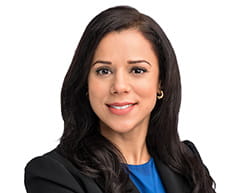Partners Karie Akeelah and Cheryl Cairns were invited by Gulf Business to discuss dispute resolution in mega projects in the Middle East. In part one of this article, we share our discussion surrounding multiple stakeholders in construction projects and the strive for the region to be aligned with international arbitration norms.
What is driving the trend of international construction disputes rising - particularly in the Middle East?
Projects in the Middle East tend to involve significant costs, multiple stakeholders and new technologies, with highly compressed timelines. Given the scale and complexity of mega projects in the region, there is an increased risk of misalignment in work scopes, timelines and responsibilities all of which can ultimately give rise to disputes.
We commonly see delay and prolongation costs claims due to improper contract management and / or poor contract drafting where the parties' obligations are unclear or unspecified. There is also a trend for what can be sometimes drastic and expensive changes in scope of work post-tender, leading to delays and increased costs.
Early warning systems in contracts, like advance notices of claims for delay and variation, are not strictly followed. Parties often miss opportunities to prepare claims or respond to them comprehensively. Timely consultation with legal advisors can significantly improve such exercises, as they conduct merit analyses to assist with negotiations and ensure records for substantiating or defending claims are preserved if the dispute escalates.
With cross-border infrastructure and mega-projects on the rise across the Gulf, how is this adding complexity to dispute resolution - especially when multiple jurisdictions and stakeholders are involved?
Stakeholders from different jurisdictions can have different dispute resolution preferences and legal backgrounds which add to the complexity of resolving disputes. To ensure neutrality and flexibility, arbitration remains the preferred mode for dispute resolution.
Careful drafting of the arbitration clause is required to ensure that it covers all relevant stakeholders in the project and to avoid time consuming and costly multiple parallel proceedings and / or jurisdiction challenges. If the arbitration clause is broad, there may be situations where a key party relevant to the dispute cannot be joined to the arbitration or worse, where it is later discovered that a party did not have capacity to arbitrate. Stakeholder mapping is useful to avoid this scenario.
Joinder and consolidation clauses are helpful tools in multiparty construction contracts. However, careful selection of the seat of the arbitration and arbitral institution is required to ensure that the governing laws and arbitral rules are adequate for multi-party proceedings.
Can you walk us through how the New York Convention supports enforcement of arbitral awards in the region, and how effectively this is applied across GCC jurisdictions?
The New York Convention requires signatories to enforce foreign arbitral awards, with limited grounds to set them aside. All GCC countries are signatories to the New York Convention, with most having legal frameworks that are broadly compatible with the Convention's principles.
However, implementation in the region can be challenging due to localised procedural requirements, legal culture and a broad interpretation of "public policy" in some GCC jurisdictions. Arbitral awards must not conflict with Sharia principles, existing laws or prior judicial decisions.
While there is a trend towards a narrower application of public policy principles, the existing framework leaves room for parties resisting the award to delay the enforcement on public policy grounds. Skilful navigation of enforcement procedures is essential to avoid such delays.
The UAE has made major strides in aligning with international arbitration norms. What are some of the key local practices or court attitudes that companies should be aware of when enforcing awards here?
The UAE is unique as it offers two legal frameworks for enforcement: an 'onshore' court system that applies the UAEs' civil law and an 'offshore' court system that applies common law used only in the Dubai International Financial Centre (DIFC) and Abu Dhabi Global Market (ADGM) free zones.
When enforcing an arbitral award (local or foreign), companies should evaluate the legal frameworks of both onshore and offshore jurisdictions, along with any applicable reciprocal treaties or agreements, to determine how to proceed with enforcement. From a practical point of view, in most cases a party will want to pursue enforcement proceedings before the courts where the assets of the award debtor are located (onshore v offshore).
In terms of attitudes, since signing the New York Convention, the onshore courts have become increasingly pro-enforcement of arbitral awards, particularly with the implementation of the UAE Federal Law No. 6 of 2018 (the Arbitration Law) and various bi-lateral and multi-lateral treaties.
Regardless of the applicable legal framework, it is important for companies to be aware of the procedural timelines and available grounds for challenging enforcement of a domestic or foreign arbitral award.
The article with the original Q&A was published by Gulf Business on 8 August 2025.

